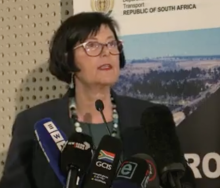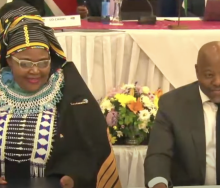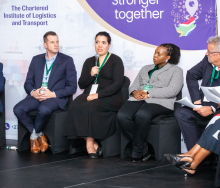Durban businesses have called on eThekwini Municipality to reverse its decision to revert to full-blown load-shedding in the city from next week.
Reacting to the municipality's announcement that the city would implement a new load-shedding schedule from 25 May, the Durban Chamber of Commerce and Industry (DCCI) said heightened rolling blackouts would lead to economic losses for local businesses.
The city has been exempted from stage one-three load shedding as its electricity infrastructure remains fragile following the April 2022 floods.
Areas with a large industrial component have been allocated to Blocks 17 to 20 and will be shut off from stage seven upwards for a duration of four hours at a time.
This is expected to limit the impact of load shedding on production.
DCCI chief executive, Palesa Phili, said the city and local businesses had negotiated with Eskom that businesses in the city continue to be exempted from stage one-three.
"As organised business, we are deeply concerned about the return to normal load-shedding stages experienced by the rest of the country.
“Load shedding severely impacts the economy across crucial economic sectors, resulting in loss of productivity, which inevitably leads to revenue losses and unplanned operational expenditure across industries and their value chains," Phili said.
"The exemption from load shedding of eThekwini businesses followed the July 2021 unrest and flooding the following year, which saw many businesses destroyed and needing assistance.
“Now we are hit with this news, while to date we still have not yet received a clear infrastructure repair rollout plan with timelines from eThekwini," she said.
"The infrastructure is in a critical state. Businesses – corporates and SMEs – will be severely impacted by this implementation.
“We are aware that there will be an exception made for industry blocks 17–20 who will only be affected from stage seven
“However, this is not enough nor is it a solution," Phili added.
She said businesses were at a "critical state" in the city and implementing a new load-shedding schedule will "worsen economic losses.
She urges the mayor, Mxolisi Kaunda, and his departmental heads to consider the following proposed interventions:
- Consultation with the city on the rationale of how the schedule decisions are made, and the private sector to be given an opportunity to contribute to the proposed schedule.
- Reconsider the decision. Durban is still recovering from the recent catastrophic events, Covid-19, the 2021 July unrest, and April/May 2022 floods.
- Make adequate provision for the South-Durban Basin. The city's electricity infrastructure in the Basin experienced severe damage because of the floods. The highly vulnerable state of the electricity network in the South-Durban Basin is a cause for concern for our members.
Phili said: "The DCCI believes more needs to be done to move towards energy security in the country and city.
“Energy generation should be led by the private sector to rapidly expand the generational capacity in the country and in eThekwini.”
According to Phili, numerous technology options could negate the need for load shedding, which are not being explored.
"We urge the city to consider the proposed interventions and the need for provincial and national intervention in the discussions regarding this matter. If we continue in this direction, we are headed for a catastrophic business collapse.”













